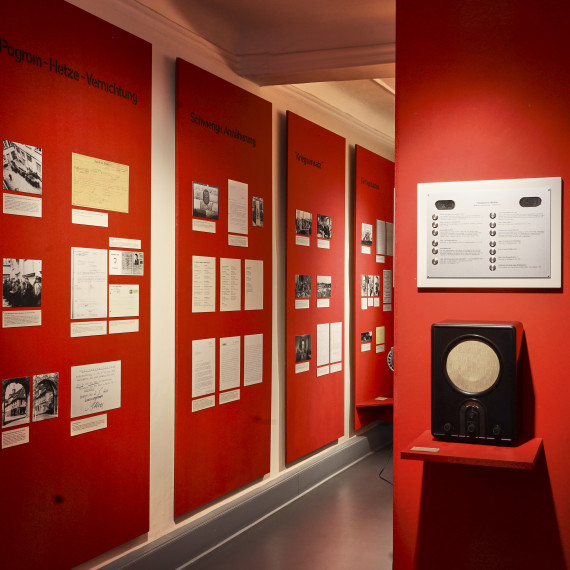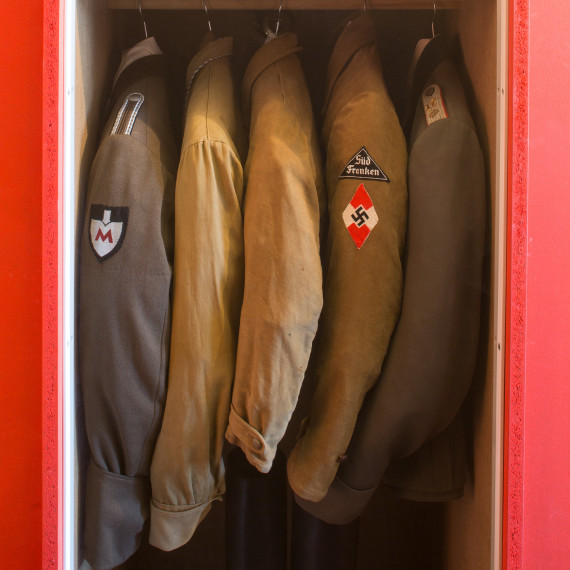Erlangen During the 'Third Reich'

Erlangen under the sign of the swastika: a German town like many others. Preparedness to use violence in word and thought, petty-bourgeois morality and male-only clubs, the rejection of modernity, and a hostility towards women's liberation predominated. Nazi mass propaganda events and the Gleichschaltung ('total alignment' with Nazi ideology) of the press became part of everyday life. Youth organisations were transformed into a state-run youth movement represented by the Hitlerjugend ('Hitler Youth', HJ) and the Bund deutscher Mädel ('League of German Maidens', BdM). All opposition was suppressed.
And yet some differences existed: the academic intelligentsia, being committed to 'virtue, humanity and truth', and including professors of theology, fell silent or paid lip service. With the introduction of general conscription and the rearmament of the Wehrmacht (the German military), the significance of the local garrison, which had diminished through demilitarisation during the Weimar Republic, resurfaced. The town boasted being the 'university town of the Reichsparteitage' (national Nazi party congresses).

In plain sight of all, the small number of fellow Erlangen citizens of Jewish descent, unless they had emigrated in time, were slandered, dehumanised, and ultimately sent to be exterminated. The management of the Heil- und Pflegeanstalt ('Institute for The Treatment and Care of the Mentally Disturbed and Disabled') allowed patients to be selected for 'euthanasia'. Industrial plants, shackled to the state by armaments contracts, began to maintain production using prisoners of war as early as 1940/41. In 1944/45, every tenth person living in Erlangen was a Fremdarbeiter (foreign worker). Forced labourers were mostly housed in camps, and treated with particular crudeness. Pregnant female Ostarbeiterinnen (Eastern workers) were forced into having life-threatening abortions.
The town was largely spared by Allied bombing raids. It also got away relatively unscathed during the occupation in 1945 because local battle commander Lorleberg, faced with a complete lack of serviceable troops, prevailed upon himself at the last minute to hand the town, overcrowded with refugees and the injured, over to the US military.
< Previous chapter | Next chapter >
